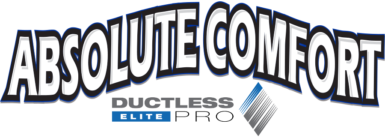Your furnace probably hums along quietly most of the time. But when it starts making strange noises—banging, whistling, or scraping—it’s trying to tell you something. Some sounds are harmless, while others signal a problem that needs immediate attention. Here’s what those noises mean, which ones you can’t afford to ignore, and how to prevent them from happening in the first place.
Banging or Booming
A loud banging noise often means delayed ignition, where gas builds up in the combustion chamber before igniting. This creates a small explosion when the gas finally lights. These mini explosions can crack your heat exchanger over time, leading to costly repairs or a full furnace replacement.
Your heating system gets dirty over time, which is why regular furnace maintenance is essential. During maintenance, technicians clean your furnace’s burners. When burners get dirty, ignition takes longer, causing gas to build up and eventually explode when it finally lights. The resulting gas buildup can crack your heat exchanger, where natural gas converts into heat. Any cracks in it can leak carbon monoxide, which is normally vented outside but can become dangerous in large concentrations.
If you hear banging when your furnace kicks on, turn it off and call Absolute Comfort right away. This isn’t something to wait on.
Whistling
Whistling usually means restricted airflow from a clogged air filter. When air can’t move freely, it forces its way through small spaces and creates that high-pitched sound. Try changing your filter first—it’s an easy fix that solves the problem most of the time.
If the whistling continues after you’ve replaced the filter, it could be a mechanical issue with the blower or a problem with your ductwork. Loose bolts or fittings on the furnace can also cause whistling. In rare cases, a damaged or defective gas valve could be the culprit, which requires immediate professional attention.
Rattling
Rattling can be as simple as a loose bolt in the access panel or as serious as a problem with your heat exchanger or blower motor. It’s often loose ductwork rattling as air moves through. The metal ducts expand and contract with temperature changes, and if joints are loose, you’ll hear rattling.
Start by checking for loose panels or screws on your furnace itself. Tighten anything that’s come loose. If tightening things up doesn’t stop the noise, or if the rattling is loud and persistent, it’s time to call a pro. If you’re hearing metal against metal, there’s probably something wrong with your blower wheel, which could be loose or damaged. Turn off your furnace immediately and call for service.
Scraping or Metal-on-Metal
A scraping sound usually points to problems with the ball bearings in your blower motor. This isn’t an emergency, but ignoring it can cause the motor to fail completely. If you hear metal scraping metal, shut off your furnace and schedule service before the problem gets worse. Running your furnace with a failing blower motor can cause expensive damage to other components.
Rumbling
Rumbling typically indicates dirty gas burners or a pilot light that needs adjustment. When burners get dirty over time, they don’t ignite efficiently. Your furnace flame should be blue, which indicates a clean and efficient burn—if your flame is any other color than blue, contact your HVAC company right away. A lot of red, yellow, orange, purple, or green indicates inefficient and potentially hazardous conditions.
This is a sign your furnace needs maintenance—and soon. Clean burners ignite properly and don’t create the rumbling sound that comes from delayed ignition.
Squealing or High-Pitched Noises
If your furnace makes a high-pitched noise like squealing when it’s running, it’s trying to alert you it needs some attention—belts could be worn down or a bearing may need to be greased. While this isn’t necessarily an emergency, it will become one if you ignore it. Over time, lack of lubrication causes motors to overheat and fail catastrophically.
How to Prevent These Noises
The best way to avoid these problems? Schedule an annual tune-up before each winter season to help ensure your furnace is up to the increased workload. During an annual furnace tune-up, HVAC specialists evaluate the condition of the furnace’s blower motor, clean it for optimal efficiency, and can shut down potential problems before they start.
Homeowners should replace or clean air filters every 1-3 months, inspect and clean vents and air return ducts, and ensure the thermostat works properly. With regular annual tune-ups, you catch small issues early and help your furnace last longer. Components like belts, bearings, ignition systems, and electrical connections degrade faster when not inspected and maintained.
When to Call Absolute Comfort
Any loud, sudden, or persistent noise from your furnace deserves attention. If you hear banging, scraping, or anything that doesn’t sound right, don’t wait for it to get worse. Our team can diagnose the issue and get your furnace running safely and quietly again.
A tune-up includes safety checks: inspecting for cracks in the heat exchanger, checking the flue or venting system, testing combustion gases, and verifying proper airflow. These checks help reduce the risk of carbon monoxide leaks, gas leaks, or incomplete combustion.
Regular maintenance prevents most of these problems before they start—and saves you from expensive emergency repairs down the road. Don’t wait until your furnace sounds like it’s about to take off. Schedule your annual tune-up now and keep your furnace running quietly all winter long.

